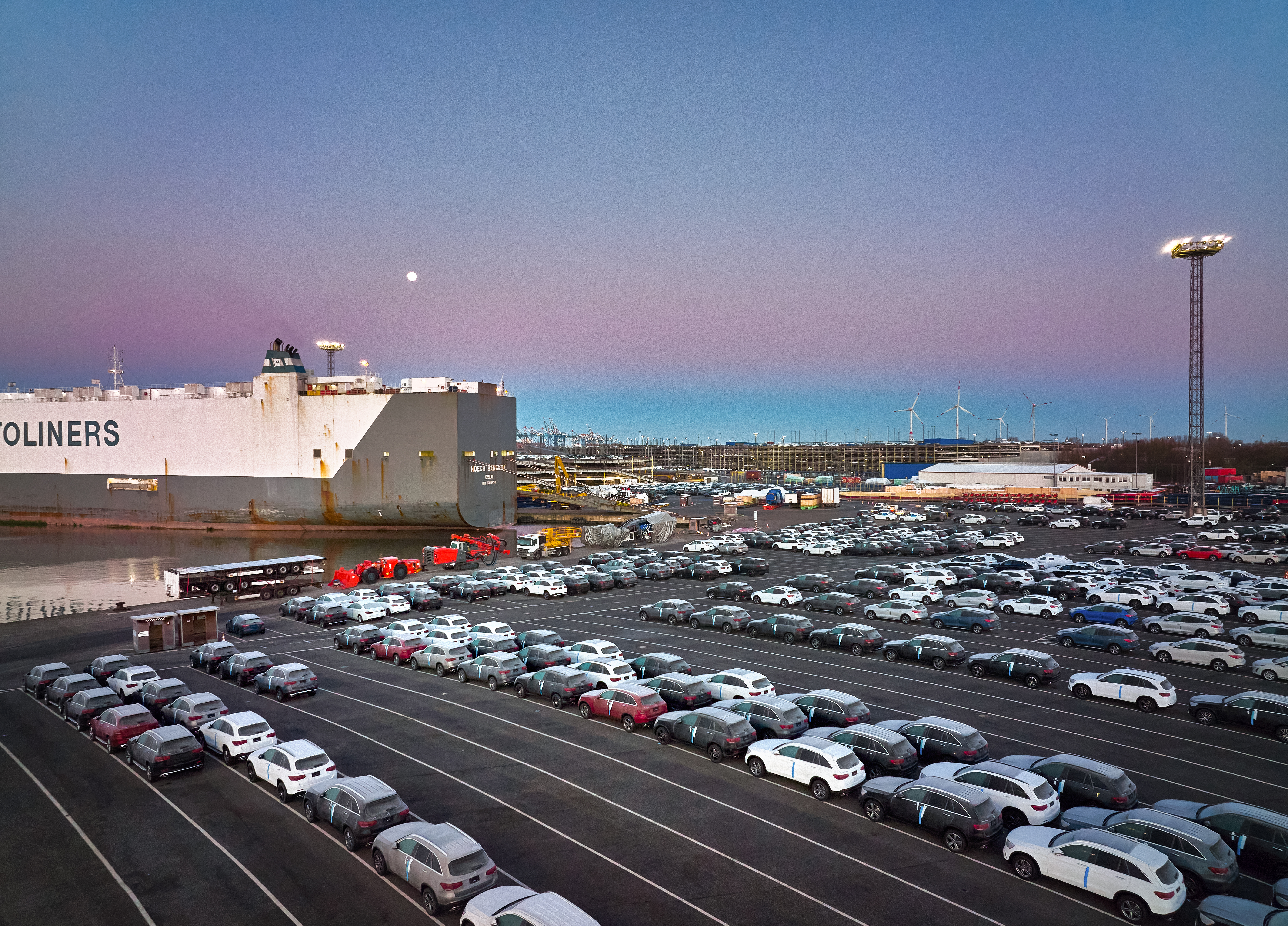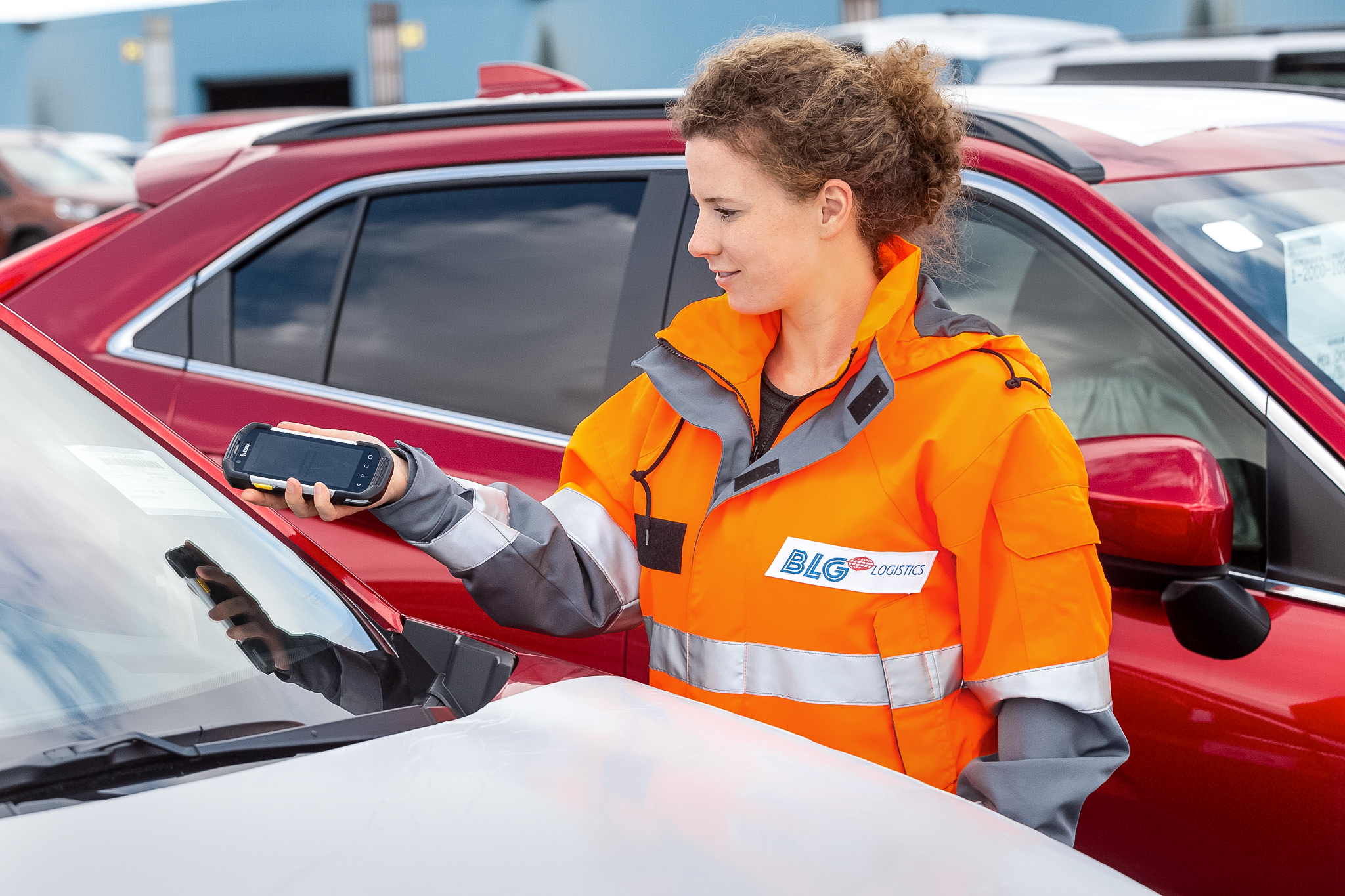INDUSTRY, Innovation AND INFRASTRUCTURE
Digital solutions hold great potential when it comes to optimizing logistics processes. We are currently testing what this can look like at our Bremerhaven car terminal, with a focus on data availability and the efficient allocation of transport orders.
UN goal
Build resilient infrastructure, promote inclusive and sustainable industrialization and foster innovation

Implementation at BLG
We support our customers’ success by constantly further developing our own services. With digitalization projects and innovative approaches, we help shape more efficient and sustainable logistics while making our company fit for the future.

Logistics processes offer numerous points of reference for digital solutions. We are involved in a number of projects that are concerned with the possibilities offered by artificial intelligence (AI) and are focusing on smart collaboration between humans and machines. One current example is Isabella 2.0. Since 2020, we have been collaborating with the Bremen Institute for Production and Logistics (BIBA) and a software partner on ways to simplify handling processes at AutoTerminal Bremerhaven and make them more transparent. The research project is being funded by the Innovative Port Technologies (IHATEC) program of the German Federal Ministry of Transport and Digital Infrastructure.
Specifically, the goal is to use intelligent control methods to achieve maximum possible process integration. AutoTerminal Bremerhaven handles around 1.7 million vehicles a year. Getting them from A to B on the 240-hectare site by literally the best possible route is a challenge that Isabella 2.0 is designed to help with. The pre-project developed a multi-touch dashboard that maps the site including driving routes and parking space occupancy data for higher-level planning. The visualization and recorded map data form the basis for order and shuttle management. As part of an initial implementation project at the terminal, drivers now scan the vehicle identification numbers at the beginning and end of each parking maneuver using a handheld device. The advantages are obvious: information about the respective vehicle location was previously only available with a time delay, but scanning now feeds it directly into the system – making exact localization of the parking spaces possible at any time.
The present research project will draw on AI to further develop the control logic in collaboration with the scientific institutes. It will also examine which other digitalization measures can help optimize terminal processes. A key part of its success will depend on getting our employees on board with us for the journey. Isabella 2.0 is accompanied by business psychologists and workshops in order to create the best possible basis for a win-win application.

